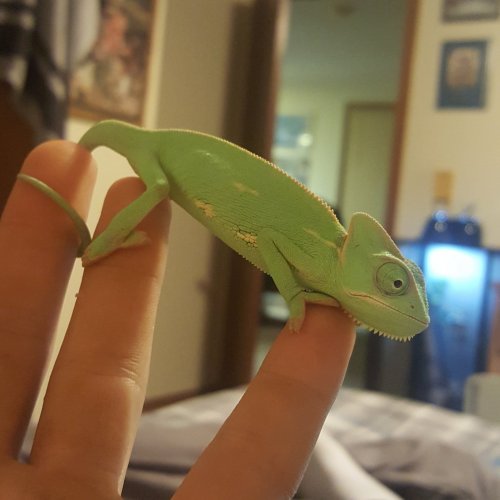Thanos22
New Member
Hello I'm a brand new member and my little guy is 3 -4 months old and doesn't hide from me really at all. for the past month of owning him I've noticed how sometimes hell head the other way or kinda hiss at first but once he's grabbed on to me he does great going finger to finger and never acts timid toward me when I do handle him. I was wondering if this was bad at his age should I backoff a little? What's the best way to kinda ensure he likes to hang out of the cage? Is he always kinda absolutely hate the spray bottle?


